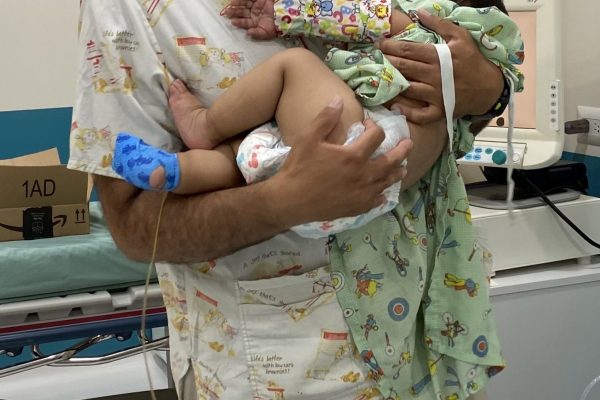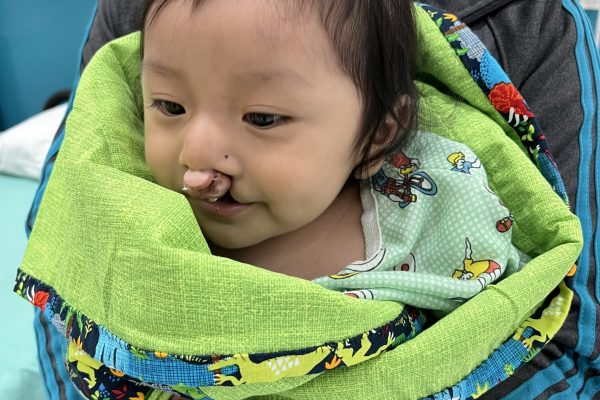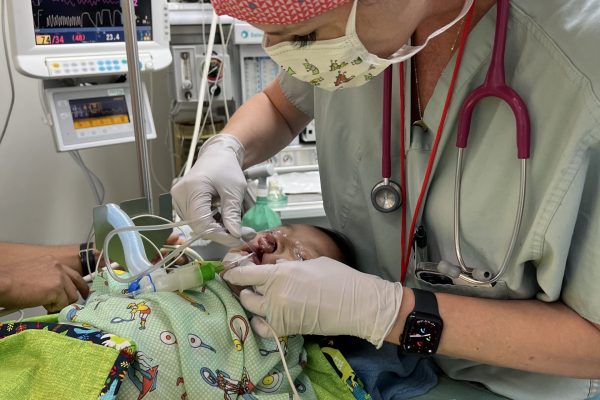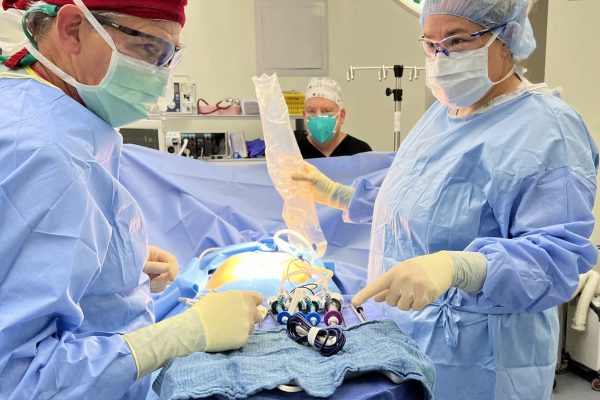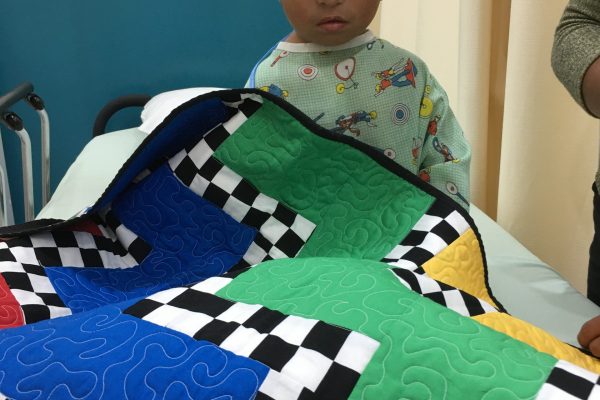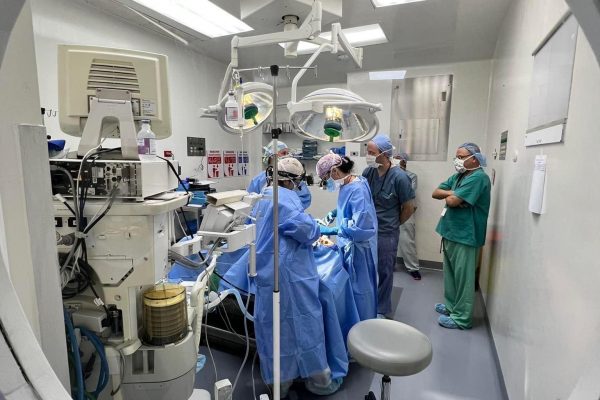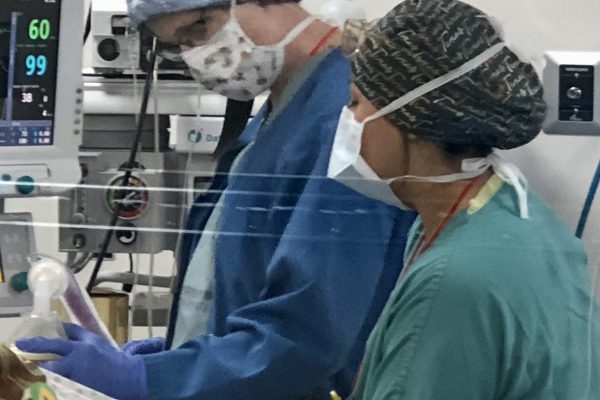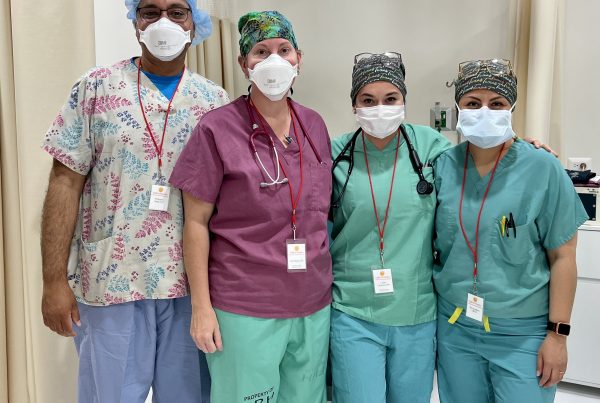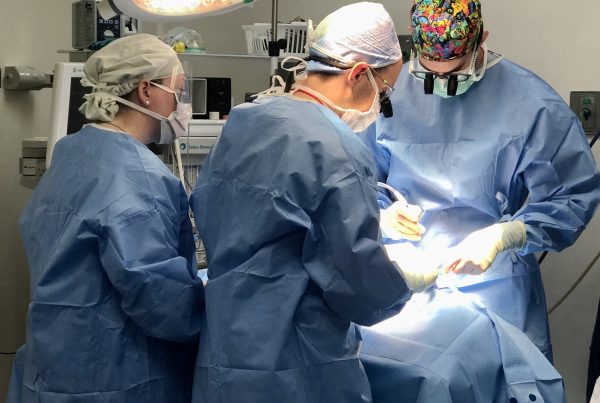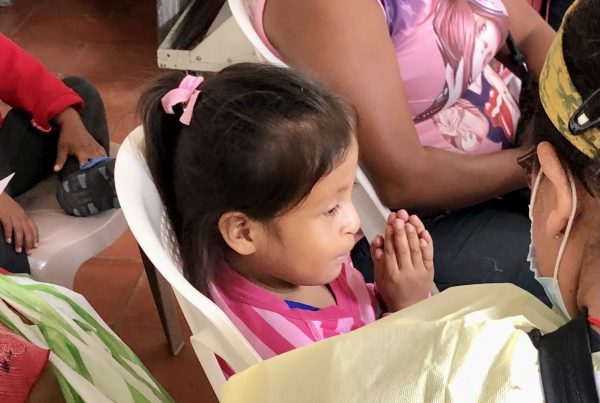Walking to the hospital this morning, it occurred to me that we could very well be serving the people that grow the coffee that I drink at home every morning without a second thought about how that warm cup of ritual gets into my hands. One of our patients this morning is a farmer making 1200Q (quetzales) monthly, roughly $170 a month. I spend that weekly at the grocery store without blinking. And, I spend a lot of money on coffee.
I do try to be mindful that the food I prepare, eat, and drink comes through many, many hands that I will never know to get to me – the farmer who grows it; the people who tend to, harvest, and process it; those that package, ship, unload and distribute it; those that put it on the shelves and check me out. And then, of course, the good earth and God’s creation – the sun, the soil, the rain, the seeds – creates the food. I am not an island unto myself but a string in a web or a link in a chain that is so much larger than myself and God deeply loves all of it, all of us.
Walking through the square in front of the hospital this morning, I saw a family group in traditional dress – the women draped in beautiful fabrics that I am sure they made themselves from the ground up – the spinning, the dying, the weaving, the sizing, cutting and stitching. A man draped in a thick cotton or wool skirt, not as colorful but of such quality. I can imagine that they have come down from the mountains, that they live in a small village in the way of their ancestors – off the land and – growing their food, raising their animals, making their clothing, making their everything for that matter. They had a Mayan look about them. Could they be growing my coffee? Or perhaps is it the woman standing at the hospital’s door selling mangos from a basket on the ground, picked from the trees around her home?
Patients come for surgery through referrals from Faith in Practice Village teams who go to the villages and provide clinical care. They fill out a form that documents their income and expenses, and then a sliding scale fee is assessed. I am told that they want to pay something and are only asked to pay what they can as it is a means of showing respect, providing self-worth, and maintaining dignity. Today, a child’s cleft palate has been repaired for 300Q, which is about $40 but still a significant amount of money for the family.
Cindy, our pre-op nurse who has been coming to Guatemala for six years and is wonderful with the patients (she packs toys – Mr. Potato Heads! – for the little ones). She told me that she had seen cases where a whole village would pool their resources to provide surgery for one member. I’ve heard a few people speak of the woman who arrived one year with live chickens to pay for her surgery. She was told to keep her chickens, and her surgery was performed at no cost. This year, a woman arrived late and in a panic, having had a mishap where she lost the money she was bringing to pay for her surgery. She was not turned away nor rescheduled but treated with kindness, respect, and compassion. Her surgery was performed. The payment taken care of. She can now live her life with much more ease, without pain and/or bleeding.
Today’s work:
- Four gall bladders
- One hernia
- Four hysterectomies
- Two cleft lip repairs
- Four palate repairs – a long but good day for the medical staff
In a way that was hard to grasp before, I can see how even a small donation, especially a regular donation, can pave the way for a huge change in the life of one person, God’s beloved, just like me. Perhaps the person who harvested and processed the coffee beans got me going this morning.


